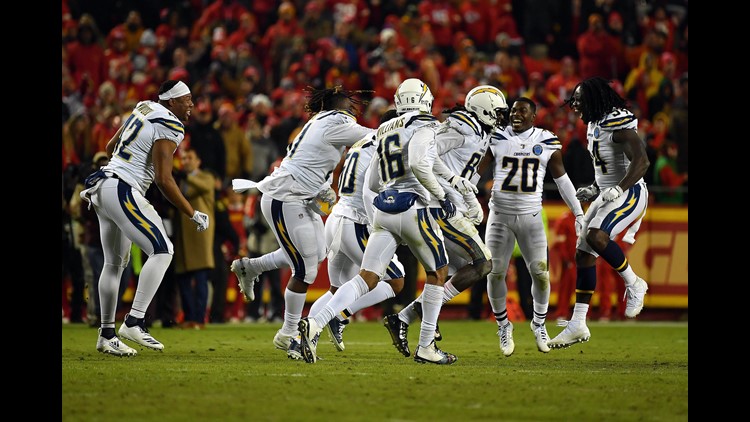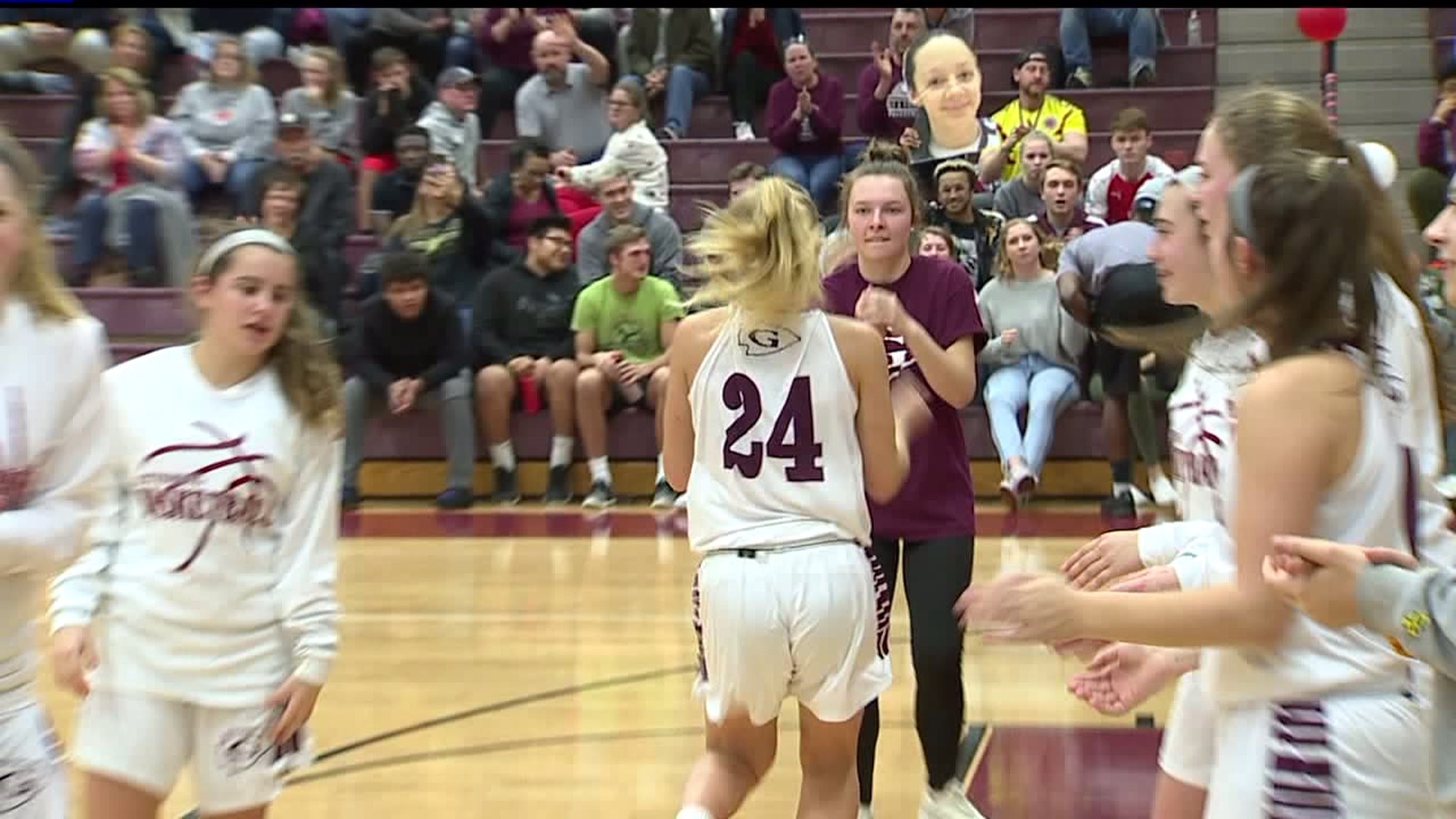When Philip Rivers found a wide open Mike Williams in the end zone for a two-point conversion with four seconds remaining to stun the Chiefs 29-28, it was more than just a Chargers win at a hostile Kansas City on Thursday.
Historically, the way they did it was rare. Since 2000, teams trailing by 14 points with two minutes remaining in the game have now won 12 games out of a possible 2,059. The Chargers also became the first team since 2002 to convert a two-point conversion to win a game in the final 10 seconds of regulation, which the Vikings did in Week 15 that year.
Additionally, it clinched a playoff berth for the Chargers for first time since the 2013 season. It also guarantees that the city of Los Angeles, which didn’t have an NFL team for more than two decades, will have two teams in the playoffs for the first time since 1985.
Back then, it was the Rams and Raiders. Now, it’s the Rams — who are battling for the top overall seed and home-field advantage in the NFC — and the Chargers, who hail from the AFC.
“It is exciting,” Rivers said on getting back to the playoffs. “I think you always talk in the division, but you just want a spot. You just want to give yourself a chance.
“The seasons are tough. You get done in week 16 or 17 and you say, we didn’t give ourselves a chance. All the years we have been in the playoffs, we have gotten eliminated but we got a chance.
“To know that we are going to have a chance again is exciting. To be one of 12 (teams to reach the playoffs) to have a chance. We have to keep getting better. We have two weeks to get better before we get that opportunity.”
The Chargers, who spent 56 seasons in San Diego before moving to Los Angeles in 2017, still have hopes to win the AFC West division. Both the Chargers and Chiefs are 11-3, but the Chiefs currently hold the tiebreaker because of their 4-1 division record. The Chargers are 3-2.
“Everybody feels good right now,” Chargers head coach Anthony Lynn said. “It is good to be in the playoffs, but we are not done. We want to win this division, so we have work to do. We are going to need a little help to get that done, but that is our goal.”
The Chargers reached the Super Bowl once, in the 1994 season, and were blown out by the San Francisco 49ers 49-26 in Super Bowl XXIX.
There’s another reason 1994 is notable. It was the last time Los Angeles had two NFL teams. The Raiders went 9-7 that year, missing the playoffs, and then jetted back to Oakland. Now, interestingly, their home for 2019 is up in the air as the team sorts out where to play next season before moving again — this time to Las Vegas.
Meanwhile, the Rams were 4-12 in 1994 and then left for St. Louis for 21 seasons. During that stretch, they reached two Super Bowls, winning Super Bowl XXXIV in Atlanta at the now-demolished Georgia Dome.
Back in 1985, the two LA representatives in the playoffs came up short. The Raiders fell in the divisional round to the Patriots, while the Rams were shut out by the eventual Super Bowl XX champions, the Chicago Bears, 24-0 in the NFC title game.
Since returning to Los Angeles in 2016, the Rams have now reached the playoffs twice, having already clinched the NFC West division title this season. Currently at 11-2, they could clinch a first-round bye this weekend and are considered one of the favorites to reach Super Bowl LIII.
The location of this season’s title game on February 3 happens to be where they last won: Atlanta. And while it’s not at the same site, the venue, Mercedes-Benz Stadium, is right next door to where the Dome once stood.
Just a few years ago, Los Angeles didn’t have an NFL team. Now, there’s a chance two Los Angeles teams could meet with the title on the line in Atlanta.
But getting through January’s playoffs must come first.
“I don’t know what more we can face to be ready for January football,” Rivers said. “I’m not jumping ahead, we’ve got work to do still. All this did was give us a spot and we still need help from Kansas City and win our next two to win the division.
“But, I don’t know what more from a battle-testing standpoint, I don’t know what else we can deal with.”



